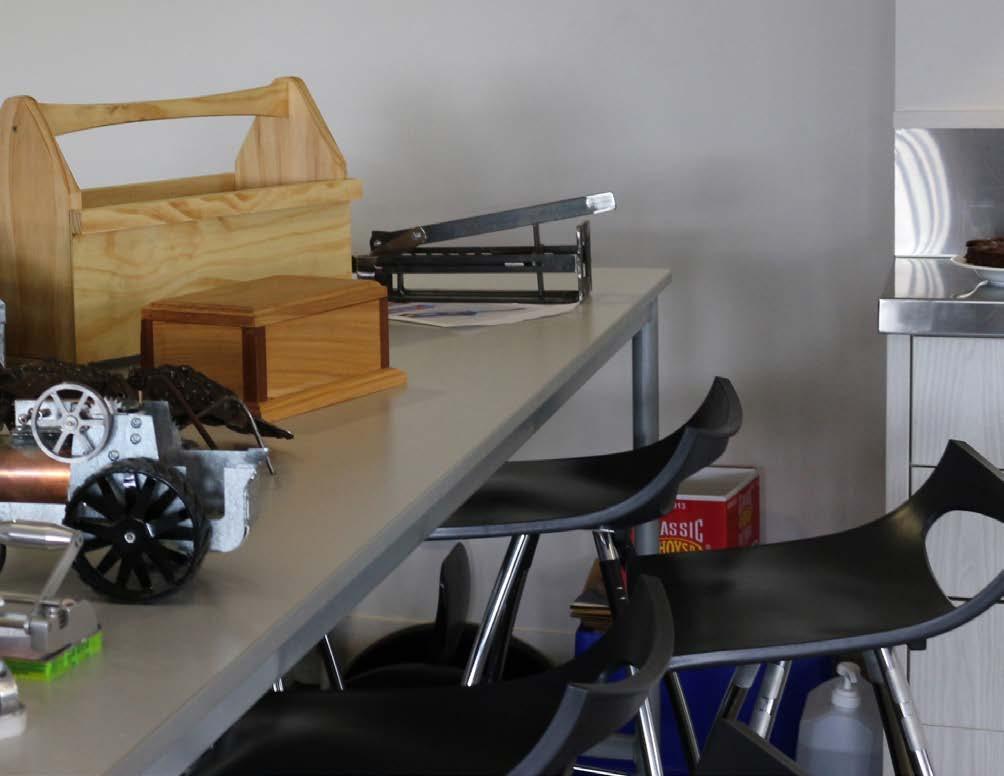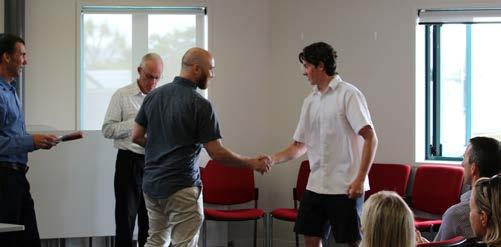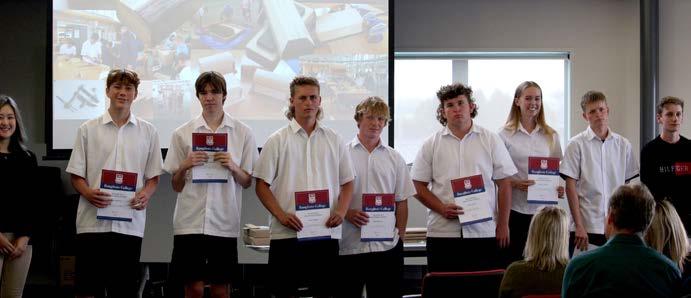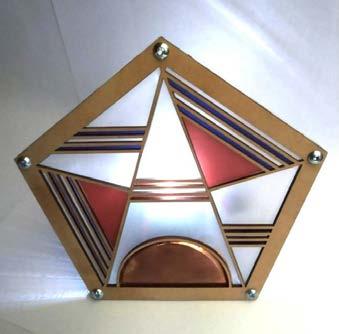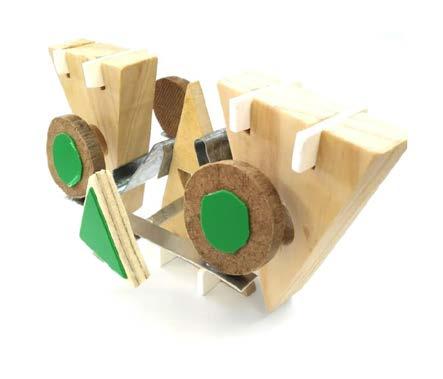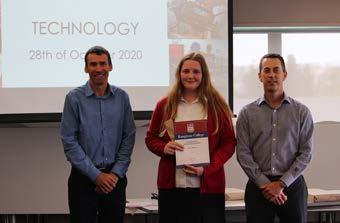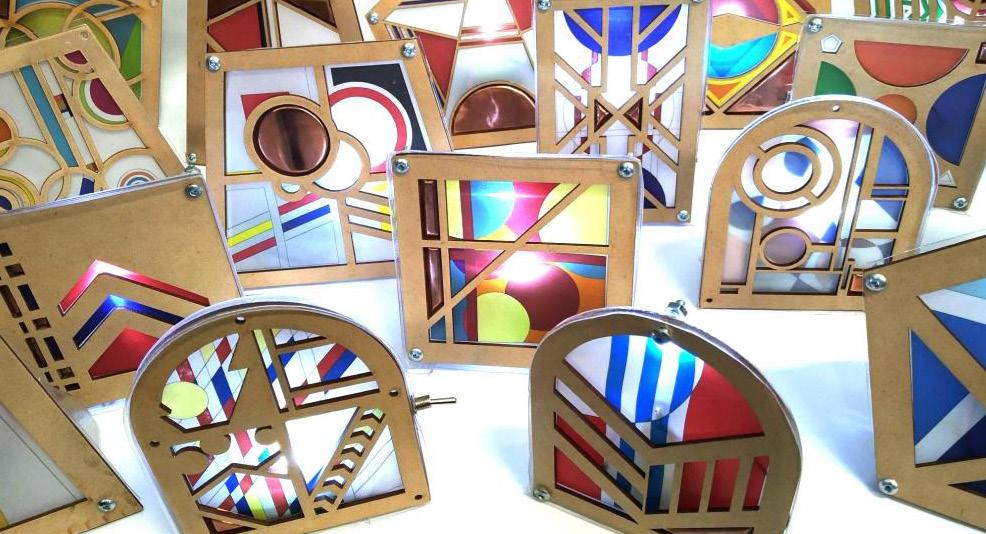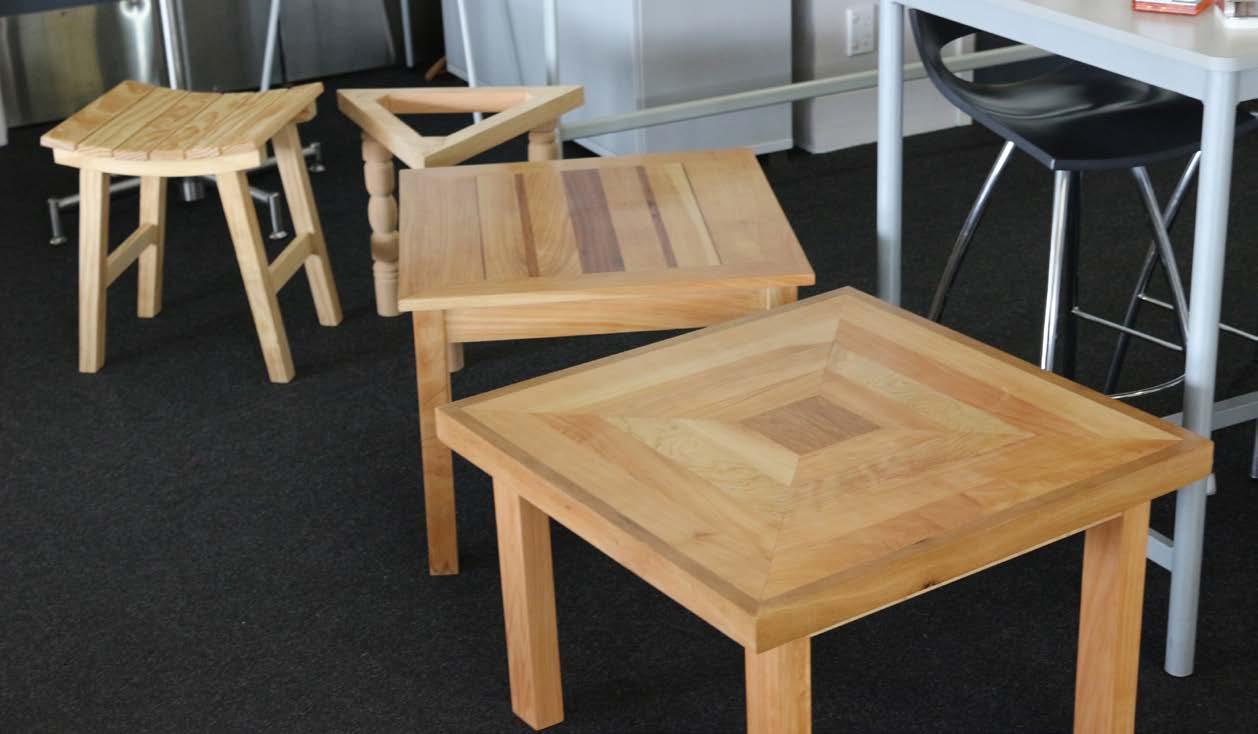
4 minute read
Technology
by Benefitz
Our students have produced a wide range of outcomes in Electronics, Material, Textiles, Food Technology, Construction, Engineering and Hospitality. Technology covers knowledge from all the subject areas that come together to be applied in a way that is practical and experimental. Students are guided to gain a broad understanding of how and why things work, and how technological products and systems are developed. They have all enjoyed developing skills, knowledge and achieving personal goals.
Food Technology

In Food Technology, students gain understanding of food choices and food processing. They learn how to apply the design process in the development of a technological solution to meet a given brief. Some highlights include vegan protein bars, gluten free meal plans, iron rich snacks, hospital meals, homemade pastas, and fusion meals from around the world. Additionally, junior courses are our building blocks and focus more on personal hygiene practices, kitchen safety, health, and nutrition, whilst embedding originality and creativity through projects of pizzas, international burgers, sustainability and more. Food Technology students along with Hospitality students have also successfully catered for the concerts that were held by the Music Department earlier this year.
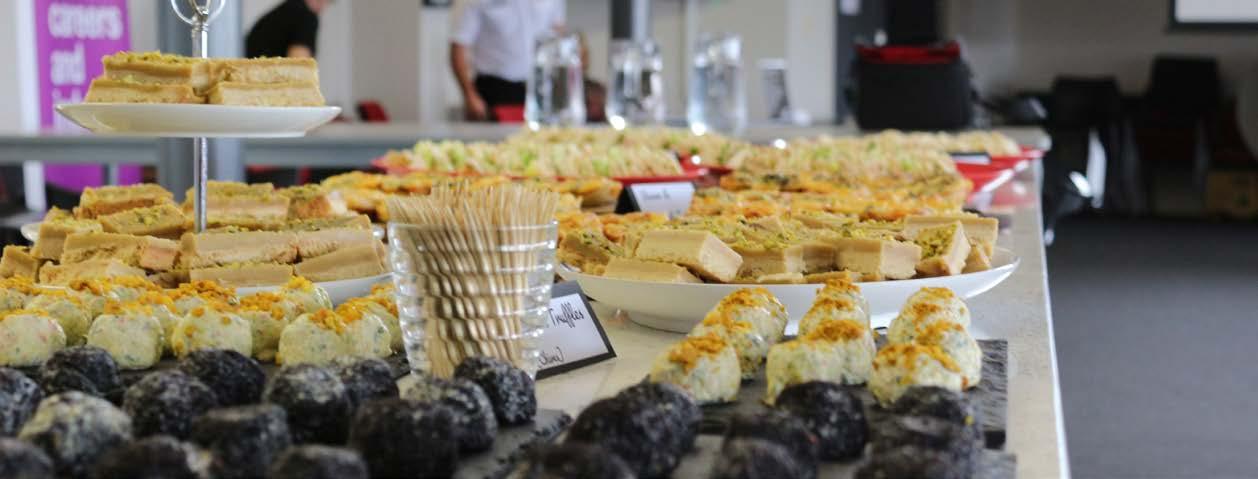

Hospitality
Wanting to become a chef? Today the hospitality industry is booming, and employers are looking for skilled staff to meet the demand. The Hospitality course is a vocational based subject for senior students, which gives young people an insight into the hospitality industry. Students experience what it feels like to work within a commercial kitchen, learning the vital cooking and barista skills to move into pathways in tertiary education, and work in cafes, restaurants, and hotels. Some delectable dishes include Cubano sandwiches, chocolate truffles, focaccia bread, and prawn laksa. It is stupendous to see the students enjoying the practical aspects of the course—preparing and serving professionally made foods and barista coffees.
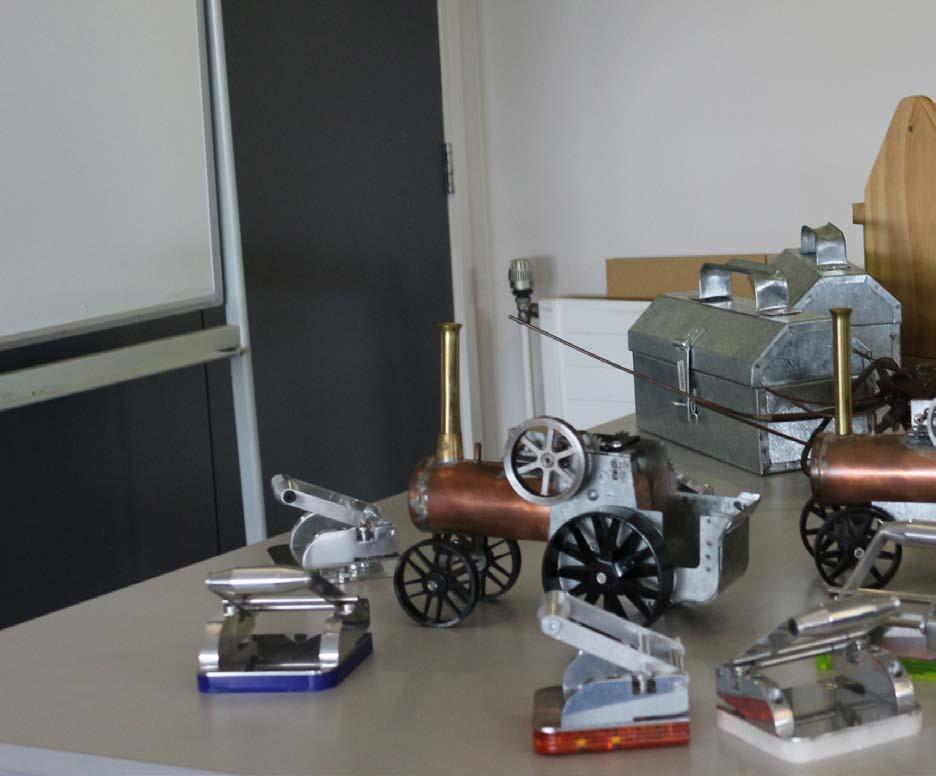
Textiles
This year in the textile course, students have been developing the experimentation and practical skills in design and textile construction. Also embedding the knowledge about textile properties and performance characteristics, and aesthetic requirements. Some highlights were the amazing Bauhaus inspired hoodies produced by the Year 9s, the mashup of designers and eras to produce outstanding costumes, the creativity poured out into the Art Competition entries, and placing third in the Wearable Arts section of Showquest.
Materials Technology
Materials Technology promotes creative thinking, problem solving, testing, and trialling of ideas with students ultimately creating a portfolio. Year 9 produced a small gift idea for a target market with some excellent products being created at the end of their practice. The Year 10 course is designed to build on their knowledge of material properties and production methods. Year 11 students have been researching mechanisms and coming up with ideas to design and create a mechanical toy that goes beyond one simple movement. Year 12 and 13 students are provided with an open context which allows them to choose an area of interest. Again, there were many interesting topics being covered, from producing a product from recycled bag clips to producing a journal from waste food to promote the wellbeing of homeless children. Students have also been engaging with the community with visits to companies such as Eco Stock Suppliers, and Zealandia. Also, students have been in contact with companies such as Reclaim, the SPCA, and Monstrum Playgrounds, a Danish company.
Electronics
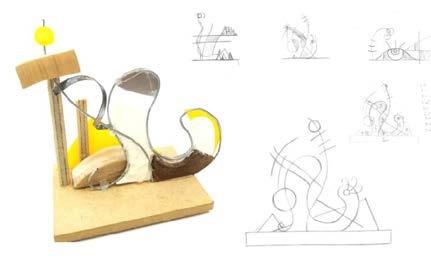
Electronics is a subject area where conceptual products are designed with electronics in mind. It develops knowledge and skills in theory of electricity, components, and micro controllers, and students learn how to programme them as a system. In our junior programme students have been designing, making, and programming their own cyberpets. In Year 11 electronics for 2021, students have been designing from a range of design briefs which include designing interactive donation boxes, electronic pop-up cards, and oracle decision maker toys. Our senior students chose their own contexts. We have had a diverse range of projects such as a student who has designed a horse-riding fall detection system, while another student has designed a fully sustainable green power bank charger.

Construction and Engineering
The construction sector is a major part of the total civil engineering and building industry. Construction projects involve using machines and materials that need organisation and control. This year our engineering students were able to gain experience using a variety of industrial machine tools, and fabrication techniques to manufacture components for their projects before having to continue more theoretical aspects to engineering whilst learning from home. Due to the restrictions and physical absences in class, learning from home has enabled a more in-depth learning approach to some of these theoretical aspects of the engineering course.
